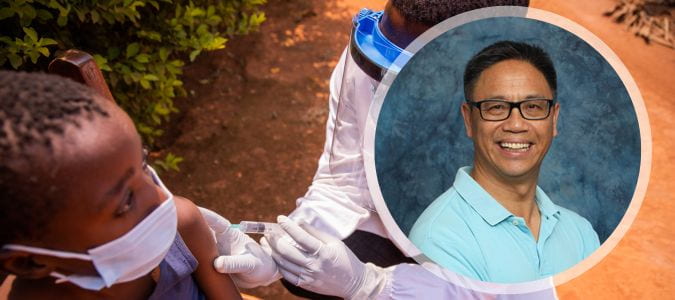UC Irvine Global Health Researcher Awarded $4.3 Million to Study Urban Malaria and Invasive Vector in Africa
A University of California, Irvine study on invasive malaria vector and urban malaria in Africa has been awarded up to $4.3 million from the National Institute of Allergy & Infectious Diseases, a part of the National Institutes of Health.
The funding establishes UC Irvine as one of the International Centers of Excellence for Malaria Research, which will engage malaria research in endemic and epidemic regions. Guiyun Yan, PhD,professor of population health and disease prevention at the UCI Program in Public Health, leads the UCI project.
Malaria continues to be a severe public health threat in many developing countries with women and children being the most affected. Malaria can be fatal; the Centers for Disease Control and Prevention estimate that 608,000 people died in 2022 from the disease malaria. There are estimates that about 95% of all malaria deaths occur in Africa — most commonly in children under the age of 5.
Global health officials and researchers have a particular mosquito species on their radar –Anopheles stephensi – an invasive malaria vector, which has spread rapidly to several African countries from east Asia. Very little is known about the An. stephensi species’ ecology and behavior, and this knowledge gap has alluded researchers’ efforts to curb their spread and elimination.
Over the next five years, Yan will lead a consortium of institutions from the US and Ethiopia to study the biology of invasive An. stephensi in Ethiopia, develop new surveillance tools and methods to track vector spread, and identify cost-effective vector control methods for urban settings.
“Current surveillance methods for invasive An. stephensi are not very effective. There’s a lack of knowledge regarding the factors that facilitate or limit the spread of An. stephensi in Africa. This center grant provides us an exciting opportunity to develop new tools and methods to effectively address these gaps,” Yan said.
This project is supported by the National Institute of Allergy and Infectious Diseases of the National Institutes of Health under award number U19AI129326. The content is solely the responsibility of the authors and does not necessarily represent the official views of the National Institutes of Health.

